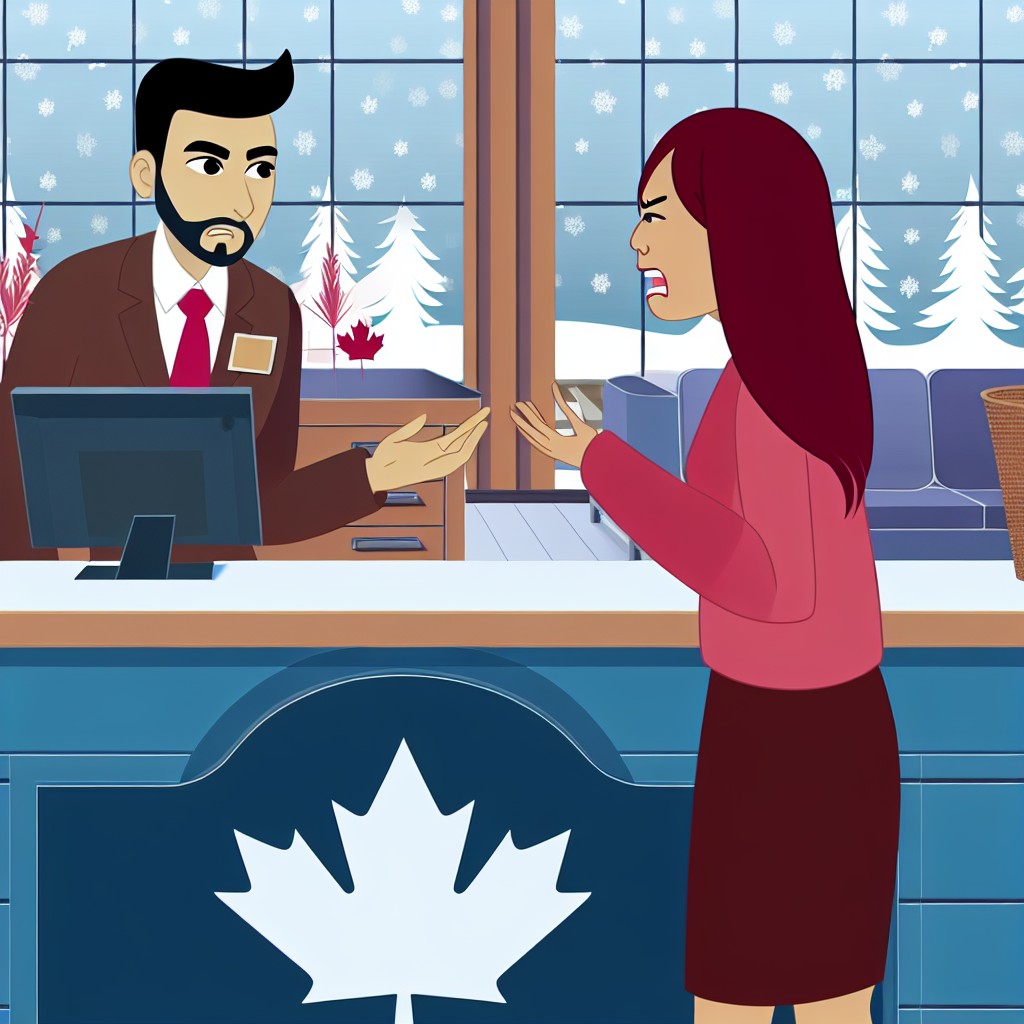Understanding the Nature of Difficult Guests
Identifying Difficult Guests
Difficult guests come in various forms.
Some may exhibit rude or aggressive behavior.
Others may simply have unrealistic expectations.
Recognizing their traits helps us respond appropriately.
Common Issues Faced by Front Desk Agents
Facing complaints about room quality is frequent.
Guests may express dissatisfaction with service delays.
Overbooking situations can also lead to conflicts.
Moreover, misunderstandings about hotel policies occur often.
Each type of issue requires a different approach.
Dealing with Emotional Reactions
Difficult guests often present strong emotional reactions.
Frustration and anger can escalate quickly.
It’s vital to stay calm and composed in these situations.
Empathy can defuse tension effectively.
Listening attentively makes guests feel heard and valued.
Understanding Guest Expectations
Many guests expect personalized service during their stay.
Understanding individual preferences enhances their experience.
Frequent travelers might have specific requirements.
Anticipating needs can alleviate potential issues.
Proactive Communication Strategies
Clear communication is crucial when handling difficult guests.
Inform guests about hotel policies at check-in.
Provide updates during service delays or changes.
Encouraging open dialogue prevents misunderstandings.
Developing Effective Communication Skills to Handle Confrontations
Understanding Guest Emotions
Difficult guests often express strong emotions.
Recognizing these emotions is the first step to effective communication.
Active listening helps you understand the root of their frustrations.
Unlock Your Career Potential
Visualize a clear path to success with our tailored Career Consulting service. Personalized insights in just 1-3 days.
Get StartedMaintain eye contact to convey your attentiveness.
Moreover, nodding can reassure them that you are engaged.
Using Clear and Calm Language
Your choice of words can greatly impact the interaction.
Avoid jargon and use simple language for clarity.
Speak calmly to diffuse any rising tensions.
For example, you might say, “I understand your concerns.”
This approach invites the guest to express themselves further.
Practicing Empathy
Empathy is critical in handling difficult guests effectively.
Show that you understand how they feel.
For instance, you could say, “I can imagine how frustrating this is for you.”
Furthermore, relate to their situation genuinely for better connection.
This helps in building rapport and trust.
Finding Solutions Together
Involve the guest in the problem-solving process.
Ask for their input on potential solutions to their issues.
Use phrases like, “What can we do to make this right?”
This empowers the guest and promotes cooperation.
Additionally, reassure them that their satisfaction is your priority.
Maintaining Professional Demeanor
Your demeanor should remain professional at all times.
This includes staying composed, regardless of the situation.
Take a moment to breathe if you feel overwhelmed.
Remember, a calm presence can significantly influence the interaction.
Ultimately, your goal is to resolve the issue amicably.
Utilizing Active Listening Techniques to Show Empathy and Understanding
The Importance of Active Listening
Active listening enhances communication between front desk agents and guests.
This technique helps agents understand guests’ concerns effectively.
Moreover, it builds rapport and trust with challenging customers.
Demonstrating Empathy
Showing empathy requires genuine concern for the guest’s feelings.
Using phrases like “I understand how you feel” can be powerful.
Additionally, reflecting back what the guest says validates their emotions.
Encouraging Guests to Share
Invite guests to express their thoughts by asking open-ended questions.
Questions such as “Can you tell me more about your concern?” encourage dialogue.
Furthermore, this approach helps gather vital information for resolution.
Using Non-Verbal Cues
Non-verbal communication plays a crucial role in active listening.
Maintain eye contact to demonstrate attentiveness and interest.
Nodding occasionally can signal that you are engaged in the conversation.
Summarizing and Clarifying Information
After listening, summarize what the guest has shared.
This technique ensures accuracy and shows you value their input.
You might say, “So, what I hear you saying is…” to clarify.
Adapting to Each Guest’s Needs
Each guest has unique needs and expectations.
Being flexible and adapting your listening style is essential.
Ultimately, this personalization can greatly improve guest satisfaction.
Learn More: How To Become A Spa Manager In Canada
Implementing Conflict Resolution Strategies for Various Scenarios
Understanding Guest Concerns
Listening to guests is crucial for effective conflict resolution.
Guests often seek validation for their concerns.
Start by acknowledging their feelings and frustrations.
A brief pause before responding shows that you care.
De-Escalation Techniques
Use calm and reassuring language during interactions.
Maintain a steady tone of voice to promote comfort.
Additionally, attempt to mirror the guest’s body language.
Empathy is key to de-escalating tense situations.
Offering Solutions
Provide practical solutions to the guest’s issues.
Be transparent about what you can and cannot do.
Whenever possible, ask the guest for their input.
This approach empowers guests and fosters cooperation.
Following Up
After resolving the issue, follow up with the guest.
A simple phone call or email shows genuine care.
This step reinforces your commitment to excellent service.
Moreover, it helps to build lasting relationships with guests.
Training and Preparedness
Regular training improves conflict resolution skills.
Role-playing scenarios can be very beneficial.
Encourage staff to share experiences and strategies.
Incorporating feedback enhances overall service quality.
Gain More Insights: How to Become a Successful Casino Host in Canada
Handling Difficult Guests
Setting Boundaries
Establish clear boundaries with guests from the start.
Clearly communicate policies and procedures when necessary.
This sets the expectation for appropriate behavior.
Remain calm when a boundary is crossed.
Address the issue directly and professionally.
Maintaining Professionalism
Always greet guests with a warm and welcoming demeanor.
Use positive language even in stressful situations.
This helps de-escalate potential conflicts.
Active listening is crucial; give guests your full attention.
Validate their concerns while steering the conversation positively.
Dealing with Escalations
If a guest becomes aggressive, remain composed.
Keep your voice steady and calm to maintain control.
Politely ask the guest to lower their voice if needed.
If necessary, involve a supervisor to aid in resolution.
Document the encounter to maintain a record of the incident.
After the Encounter
Review the situation with your team afterward.
This promotes learning and improvement in handling similar cases.
Seek feedback from colleagues and supervisors for better strategies.
Regular training can enhance your skills in managing difficult guests.
Always strive for a solution that maintains guest satisfaction.
Uncover the Details: Essential Tools and Technology for Modern Concierges

Knowing When to Escalate Issues to Management or Other Departments
Identifying Critical Situations
Recognizing critical situations is essential for front desk agents.
Pay attention to guests exhibiting extreme frustration or anger.
Take note if a guest’s issue remains unresolved for an extended time.
Additionally, look for situations involving damage to property or safety risks.
Assessing Your Authority
Understand the limits of your authority as a front desk agent.
Make sure to know what types of issues you can resolve independently.
If a guest requests a refund, determine if you have the power to authorize it.
Always clarify the boundaries of your role with management.
Effective Communication Skills
Use active listening techniques to show empathy toward the guests.
Maintain a calm tone, even when the guest is upset.
Clearly explain the steps you can take to address their concerns.
If necessary, reassure the guest that management can assist further.
Knowing When to Involve Others
Escalate the issue if the guest requests a manager multiple times.
Involve specialized departments for technical issues beyond your expertise.
Refer to security if the situation escalates to a safety concern.
Prioritize guest satisfaction by ensuring they feel heard and valued.
Documenting Issues for Future Reference
Always document the details of the issue as accurately as possible.
Include guest names, dates, and the nature of the complaint.
This documentation helps management understand recurring issues.
Moreover, it informs changes to improve overall guest satisfaction.
Find Out More: Insider Tips for Becoming a Professional Sommelier
Creating a Personalized Service Approach
Understanding Individual Guest Needs
Every guest has unique preferences and expectations.
Take time to listen to their requests and concerns.
This helps build a rapport and shows you care.
Additionally, observe their behavior for clues.
Document any specific needs for future reference.
Tailoring Communication Styles
Adjust your communication to match the guest’s style.
Some may prefer formal interactions, while others enjoy casual chats.
Your adaptability demonstrates professionalism and empathy.
Moreover, using their name in conversation personalizes the experience.
It helps guests feel valued and recognized.
Offering Customized Solutions
Empower yourself to provide tailored solutions.
When challenges arise, offer alternatives that fit their needs.
For instance, suggest room upgrades or local attractions.
Be aware of ongoing promotions that might catch their interest.
This flexibility can turn a negative experience into a positive one.
Follow-up and Feedback
After their stay, reach out to gather feedback.
This shows you value their experience and input.
Address any concerns they may have expressed during their visit.
Additionally, utilize their feedback to improve future services.
Consistent follow-ups build lasting relationships with guests.
Following Up with Guests After Resolution
Importance of Follow-Up
Following up with guests shows you care about their experience.
It can help identify any lingering issues they may have.
This step enhances guest satisfaction significantly.
Methods for Effective Follow-Up
Use phone calls for personal engagement with guests.
Send thank-you emails to express appreciation for their business.
Consider utilizing surveys to gather insightful feedback.
Phone Call Follow-Up
Make the call within a few days of their stay.
Ask if everything met their expectations during their visit.
Listen actively to their concerns and suggestions.
Email Follow-Up
Craft a personalized message thanking them for staying.
Inquire about their experiences and any issues encountered.
Include a discount for their next stay as a goodwill gesture.
Feedback Surveys
Send surveys to gauge guest satisfaction comprehensively.
Keep questions concise and easy to understand.
Analyze the data to identify patterns in feedback.
Utilizing Guest Feedback for Improvement
Use the feedback gathered to address recurring problems.
Hold team meetings to discuss guest concerns openly.
Implement changes based on the most common suggestions.
This proactive approach can improve service quality significantly.
Additional Resources
Front Desk Agent Job Description [Updated 2025]
Are Expedia and Booking.com still good and reliable for booking …




